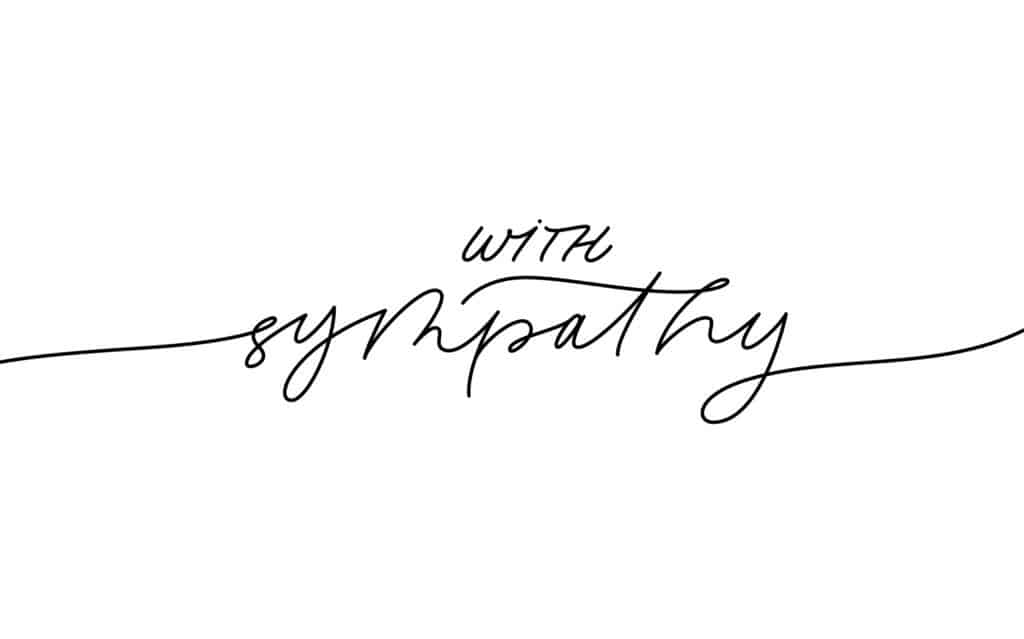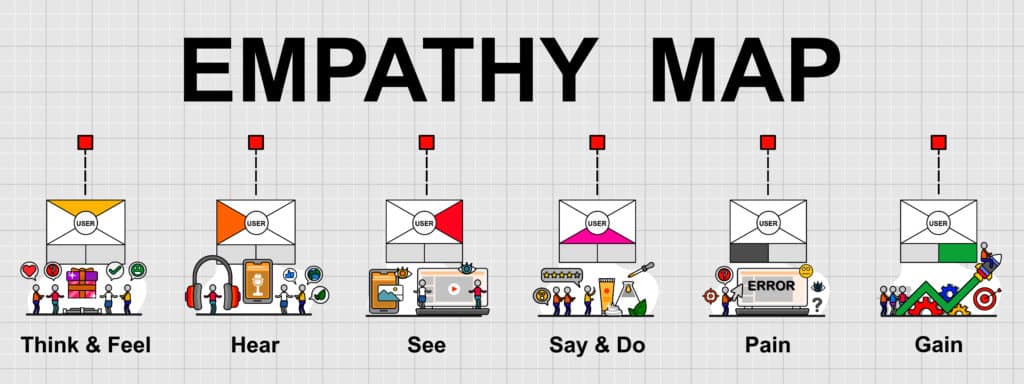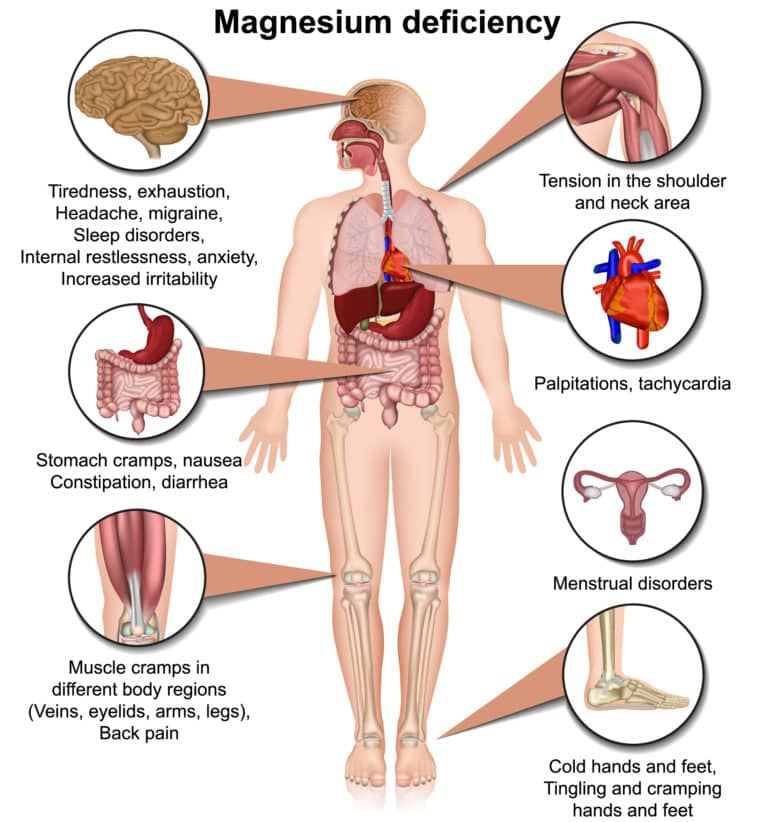Empathy Vs. Sympathy: The Eye-Opening Guide to Caring For Others
Do you know why empathy and sympathy are essential and what role they play in our life? Both these words are often used interchangeably, but in reality, both hold entirely different meanings, and only one of them is used as a tool to help people connect with others deeper than surface level. So let’s have a better understanding of what the difference between empathy vs. sympathy is.

Table of Contents
Empathy vs. Sympathy vs. Compassion
It is not just a courtesy word, the Greek phrase that lends empathy its meaning is “passion from feelings or emotion.” Empathy holds within one word lots of feelings, thoughts, and emotions sensitively. It is one of the essential aspects of creating solid relationships and emotional awareness in an objectively explicit manner.
Empathy means to feel what the other person is feeling in the same way as if you are in the same situation as they are. It is an ability to see people’s problems from their point of view rather than what you think about them.
When talking about empathy, you are more emotionally into the situation; it’s more like putting yourself in the sufferer’s position to understand what and how they are feeling.
Most of us have this feeling of empathy, but displaying it is tricky and not in practice. Nevertheless, one cannot underestimate the power of empathy because there are so many benefits that many people aren’t aware of.
Sympathy means feeling sorry for someone and not forming a deeper connection with their pain. It just involves feelings of sorrow, grief, and sadness for others facing difficulties or has lost their loved ones, etc.; in such cases, we speak sympathetic words to sympathize with them but do involve ourselves as we do in empathy.
Essentially empathy is a deeper feeling than sympathy and it helps you be able to see that the person’s struggle is hard for them even if you don’t think their problem is major or if you’ve never been through it.
Compassion is a strong feeling of sympathy or essentially empathy but you have the desire to help them make changes.
- -How to Learn relaxation techniques you can do anywhere.
- -Identify anxiety in yourself and others.
- -Learn how to better react to situations and set a firm foundation for dealing with stressful situations.
- Use Natural Supplements, Dietary, and Lifestyle changes to help you feel less anxious sooner.
- I am a Counselor in Training, so I share what I learn through my education and experience and the price will go up shortly--- However! You will get all of the free updates I make to the course at no additional charge to you! As I learn through research, my education, and personal experimentation of new supplement regimens I will share them with you!
What is better empathy or sympathy?
Empathy is a deeper feeling than sympathy, allowing yourself to feel a little bit of a person’s pain. Sympathy takes less effort to an extent because it is something that the person can naturally relate to the other due to similar experiences. Verses empathy takes more out of the person empathizing because they have to envision the hurt that the other individual is enduring and almost take on those feelings of pain or struggle.
Therefore empathy would be the “better” feeling because you are able to care for someone else even if you don’t fully understand them.
On the contrary, if you empathize too much it is possible to carry other people’s burden rather than hearing them out. This can contribute to anxiety and burnout from “taking on other people’s problems”.
Critical Characteristics of Empathy and Sympathy
Both the words share the same suffix, “pathy,” which originates from the Greek word “pathos” pathos means “emotions or feelings and sometimes suffering,” making them both showcase emotions but in a different manner. See below for an easy way to know the difference between both the terms is:
Sympathy refers to feelings you share with others, and it is derived from a Greek word meaning “with feeling,” i-e, just a way we share someone else’s feelings without any deep involvement.
On the other hand, empathy is understanding why another person is upset over a situation. So you don’t just express your feelings. Instead, you share the other person’s feelings by showing involvement.
Empathy is a more meaningful term than sympathy because a person can perceive what the other person is feeling even if they haven’t experienced anything similar.

A person who feels sympathetic does not build a deep connection with the sufferer but instead offers surface-level understanding and does not allow you to see from their perspective.
Whereas someone who feels empathetic knows how to walk in the other person’s shoes, it makes them capable of helping that other person better.
If you are empathetic, you can listen carefully to the other person without being judgmental, regardless of your personal experiences.
Unlike empathy, sympathy can lead to unsolicited advice to deal with other person suffering, which often includes judgments.
Types of Empathy
In an attempt to define and discriminate empathy from sympathy, empathy is divided into three main types that are:
Emotional/Affective Empathy– is the ability to share other persons’ emotions in a more profound
sense. Affective empathy is an appropriate response to others’ emotions that leads to a state of personal distress.
Somatic Empathy-refers to the physical response you feel when you hear about someone Else’s suffering. If you have somatic empathy, you take the material impact of others’ experiences, and you can feel what they are feeling.
For a better idea of this type of empathy, consider a situation you might have experienced, like a sudden feeling of blush or butterflies in your stomach when something embarrassing happens with the other person around at the workplace or home.
Cognitive empathy– is the capability to realize the mental state of the other individual in a particular situation rather than just emotionally feeling their pain. This kind is more focused on mental conditions than what they think in response to the circumstances. A type that can be called the theory of mind, in which you think about what someone else’s is thinking in the scenario they are facing.
Types of Sympathy
Sympathy is divided into two major types:
Active sympathy- is a kind of response to someone else’s situation where you feel the urge
To help them come out of the situation than just feeling sad for them. It is responsible for the impulse to protect, console, and help others overcome their condition.
It is just like you see a beggar around you, and if you pay them, it is the result of your active sympathy as you try to help make other people feel better by giving them what they need.
On the other hand, passive sympathy is linked with sympathetic induction with zero or
no intention to help the other person. It is simply the arousal of certain feelings depending on the condition of the other person’s experience. Here when you see a beggar, you feel bad for them but won’t try to help them out.
Passive sympathy is further sub-divided as:
Positive sympathy related to delight and gladness
Negative sympathy related to distress, pain, or fear
How to Express Sympathy
Here we will explain how you can express your emotions correctly—knowing whether you are being sympathetic or empathetic.
1. By Just Showing-Up
Supporting someone grieving, meeting them in person, and feeling sorry for their situation are examples of being sympathetic. Likewise, you can sympathize with anyone facing a challenging problem by simply showing up when needed, making them feel not alone, and having someone caring out there.
2. By Writing Expressive Notes or Messages
Another gesture most commonly adopted by many of us is writing a condolence note or congratulation message to express your feelings depending upon someone else’s state of affairs. It is our usual practice to send a notification as soon as we hear a piece of good or bad news. This is because of the sympathy we have inside us for the people around us. Writing a note full of love to support your loved one is one of the most effective ways of expressing your sympathy!
How to Express Empathy
Expressing empathy is entirely different and requires little more than feeling and being friendly. Follow the below-mentioned habits to express empathy successfully. Sometimes it can be challenging to empathize with someone if you really can not relate or maybe because you feel depressed and you are low on your serotonin or dopamine, then it may be challenging for you to feel the way you should.
1. Listening Actively Rather Than Giving Advice
Sometimes, we need a good listener who can listen to what we feel rather than focusing on what to say next. So often, we are indulged in our thoughts and lose our focus on what the other person is saying.
If you wish to practice empathy correctly, you need to fully and actively listen to the words and other non-verbal indications. Carefully observe the body language and tone to understand what the other person is going through.
This is something therapists do and it is a great skill for everyone to feel heard and respected no matter how they feel about a situation.
Let them finish what they want to say, take a moment to process the information, and then decide what you should speak to empathize.
2. Rephrase What You Hear in Your Own Words
Another easy way to express your empathy is by carefully choosing your words and rephrasing what you have heard about someone in your own words—making it easier for you by quoting an example of how to ask in a more empathetic way. Hey dear, what am I hearing is that you feel incapable of completing the task? Does that sound right?
This is another therapist tip that we are taught, to repeat back what we hear the person saying to make sure we are understanding correctly.
When we assume instead of ask, we will have a harder time helping someone feel heard and respected and we could also create some cognitive distortions or false beliefs.
You are asking someone about their problem in a way where you take the burden on yourself and not them, giving them a chance to correct you if you heard wrong without getting hurt or disturbed.
3. Avoid Being Judgmental
The critical factor in discriminating empathy from sympathy is not being judgmental. The best way to show empathy is to try not to be judgmental in your behavior. It is human nature to assume as soon as you hear about others’ situations, to express empathy, you need to be more focused on showcasing your support by responding in a peaceful manner rather than reacting.
Learning to come from a place of gratitude and understanding can be very helpful in helping you empathize with others.
When you are taking care of your needs and filling your cup up, then it is much easier to help fill up others cups or just to be there for them.
A great way to do that is to start a gratitude journal so you can write about everything you are grateful for and you can be mindful of how you feel about certain things you value and it will help you understand why others may value what they value.
- A Day and Night Reflection Journal will help you center your day around positive feelings and gratitude. It’s the perfect place to record and celebrate anything that you are grateful for and to preserve important memories.
- Cultivating gratitude is one of the most potent and important mindfulness exercises, and thankfulness has proven to have a positive effect on a person's mental health and general well-being
4. Help Meet their Needs
For those who wish to be empathetic, there is no other way as best as giving your help to meet the needs of others in distress. Taking the quick action of helping someone in a particular situation achieve what they need is the most significant gesture of empathy.
When you need to express sympathy, empathy, or both throughout your life, make sure you’re knowledgeable in the way described above. These simple gestures can help people heal and feel better in a short time.
So, this was the main difference between Empathy and Sympathy. If you enjoyed this article, we do post new articles weekly. So check back for more information on mental health, stress, parenting and more.
Originally posted 2022-04-26 00:43:53.
Megan Santiago
Latest posts by Megan Santiago (see all)
- How to Find a Trauma Therapist in Tampa - September 30, 2024
- Niacin for Anxiety: A Better Route for Relief Now - March 10, 2024
- Natural Remedies to Calm a Hyper Child: Secrets Your Doctor Won’t Tell You - March 10, 2024




